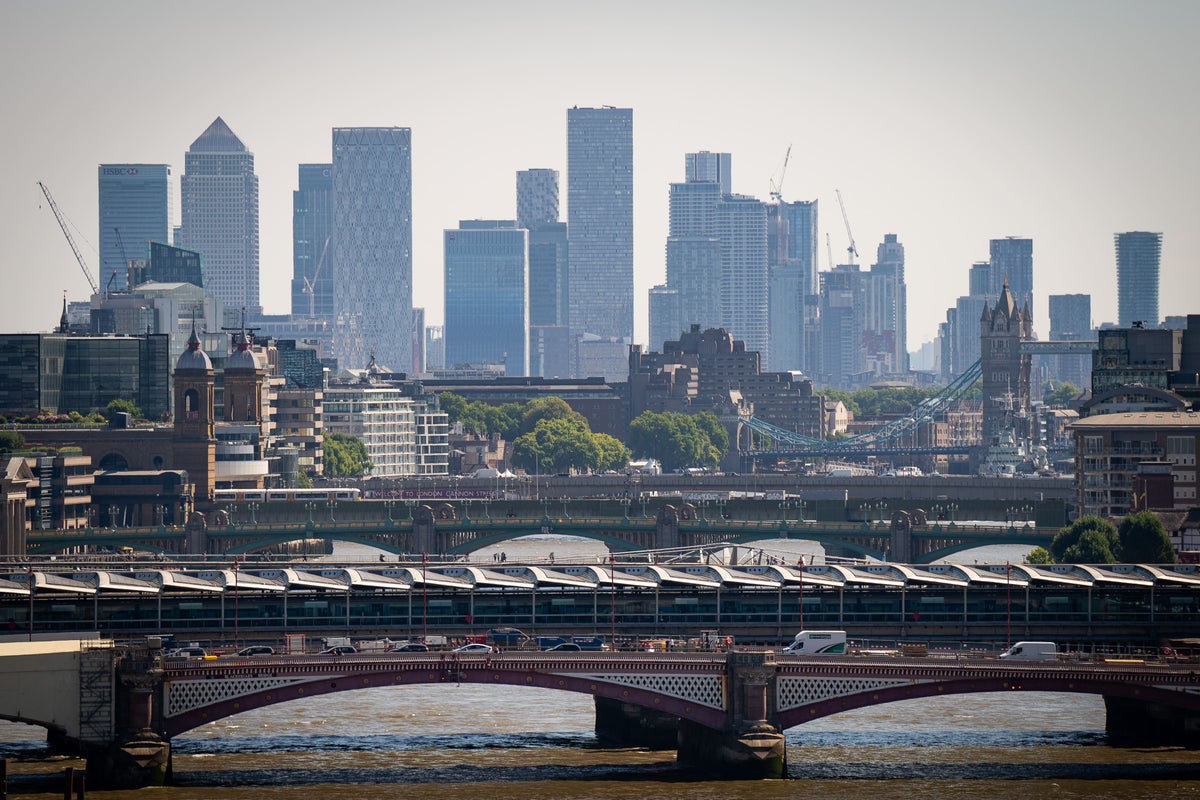
Six of the UK’s biggest high-street banks have been placed in a “red” warning category by consumer champion Which? over their fossil fuel investments and commitments to tackling climate change.
JP Morgan Chase, Santander, Barclays, HSBC, NatWest Group and Lloyds Banking Group were exposed for having too weak green credentials.
Just three of the UK’s 13 leading current account providers earned the Which? Eco Provider badge following the analysis with non-profit research firm Reclaim Finance.
Those in the “green” category were Nationwide Building Society, The Co-operative Bank, and Triodos Bank UK.
All three were found to have no exposure to fossil fuels in their banking activities.
Consumers wanting to make more sustainable choices “might want to consider switching banks,” Which? said.
Consumers seeking to make more sustainable choices might want to consider switching banks if they are uncomfortable with their money being invested in the fossil fuel industry— Sam Richardson, deputy editor of Which? Money
The analysis covered the banks’ environmental policies, statements on agricultural commodities such as beef, soy and palm oil, transparency levels, and targets to reduce their exposure to fossil fuels.
Global banking giant JP Morgan Chase was given the lowest total score for positive environmental impact, at just 16%.
The bank contributed around 434 billion US dollars (£357 billion) in fossil fuel financing between 2016 and 2022, according to data sourced for the analysis.
JP Morgan said it was targeting 1 trillion dollars (£820 billion) for green initiatives by 2030 to help its clients speed up their transition to low carbon output.
“As one of the world’s largest financial institutions, we provide financing across the energy sector: supporting energy security, helping clients accelerate their low carbon transition and increasing clean energy financing with a target of 1 trillion dollars for green initiatives by 2030,” a spokesperson said.
“In 2021 and 2022, we financed or facilitated more than 175 billion dollars (£144 billion) towards our target.”
Spanish bank Santander received the second-lowest total score of 23%.
Its fossil fuel financing was far lower, at around 51 billion US dollars (£42 billion) for the same period, but it was rated poorly for its stance on fossil fuels and agricultural commodities.
The bank said it had set emission reduction targets for 2030 across a range of sectors within its loan book, such as oil and gas, steel and aviation.
Multinational banking giants HSBC and Barclays were also red-rated by the consumer group.
Barclays is Europe’s biggest fossil fuel financier, and it scored lowly on its coal, oil and gas policies.
However, it was the only bank identified by Which? to set 2025 targets for power and energy, and it has provided more than £87 billion of green finance since 2018.
Where companies are unwilling to reduce their emissions consistent with internationally accepted pathways, they may find it difficult to access financing, including from Barclays— Barclays spokesperson
Barclays said many oil and gas companies are “critical” to the transition to a low-carbon business model, and that it can “make the greatest difference by working with customers and clients” as they change and modernise.
“Where companies are unwilling to reduce their emissions consistent with internationally accepted pathways, they may find it difficult to access financing, including from Barclays,” a spokesperson said.
HSBC received a two-star rating for its coal, oil and gas policies, and is one of the UK’s biggest fossil fuel backers. However, the bank has pledged to stop providing new finance for new oil and gas fields.
It added that its net zero targets are “particularly ambitious given our scale and footprint, and we have made good progress”.
British banks NatWest and Lloyds received overall scores of 40% and 43% respectively, having less involvement in financing the fossil fuel industry and setting ambitious targets to reduce emissions.
Lloyds said it was actively working with oil and gas clients to help them establish credible transition plans by the end of 2023, adding: “We know time is critical”.
NatWest said oil and gas accounts for just 0.7% of its balance sheet, and pledged to stop financing coal in the UK by October next year and globally by 2030.
Meanwhile, building society Nationwide said it was “delighted” to be recognised as a good choice for people looking for a greener provider, and said it has “committed to playing our part in the transition to a net-zero future”.
The Co-op Bank, which sets high ethical standards for the business, stressed that it withholds finance to any business whose activity contributes to fossil fuel extraction or production.
Which? found that Triodos refuses to invest in fossil fuel projects, and focuses its lending on renewable energy.
“We also go beyond exclusion and actively look for positive impact… delivering positive change for people and planet,” Bevis Watts, Triodos’s chief executive said.
Sam Richardson, deputy editor of Which? Money, said: “Consumers seeking to make more sustainable choices might want to consider switching banks if they are uncomfortable with their money being invested in the fossil fuel industry and other projects which could be damaging to the environment.
“By choosing one of Which?’s three Eco Providers, customers can feel confident that their bank has impressive green credentials and steers clear of investing money in coal, oil or gas.”







